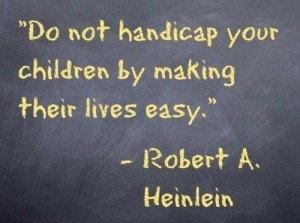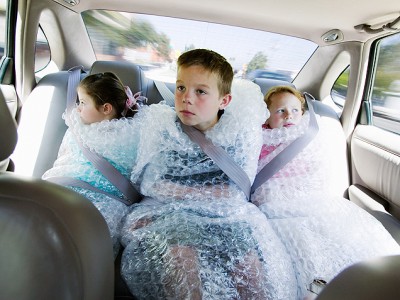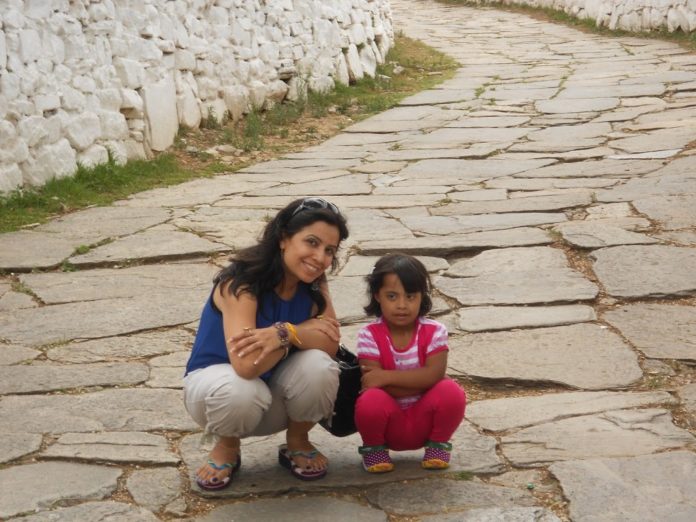
The other day, a friend and a parent of a child with Down syndrome was telling me how she was unhappy with her speech therapist and was looking for a new one. Considering this therapist was probably her 10th or 11th while her son had just turned 5, I thought of similar calls from her in the past and how it was not just the speech therapist she was unhappy with. She had changed OTs, special educators and play schools frequently because she thought they were not doing much for her son.
She is a devoted mother who takes her child to at least 10-12 therapies sessions every week spending almost equal or more time in commuting, leaving the child with no time to learn anything on his own. I sympathize and empathize with her because it is but natural for all of us parents of children with special needs to feel that we are not doing enough or if we are missing out on something that can help our children learn better. But seeing this friend losing her sleep, health, time and money made me realize if it was really for the child and his better future or actually for my friend’s non acceptance and guilt?
You can also read : How to not die young worrying about your child with special needs?
More often than not, when a child is diagnosed with a learning disability or a special need, parents feel natural to take over or do everything that they believe is going to make them ‘next to normal,’ nothing wrong with that, but when this chase takes a life of it own, then the real struggle starts. In no time parents become “helicopter or lawnmower parents” hovering over their children all the time and making sure that the kids never get the benefits of dealing with any problem on their own.
They become the shadow of their children, catching them before they fall or praising them without any actual effort, making them dependent. Understanding their disability and offering help when it’s needed is different from overdoing it. Things are even harder when the parents get into self pity and ‘I am not doing enough” mode.
The simple rule is you can’t always pave a straight line of success, kids need to draw and define it on their own may be with just a little guidance from you.
The problem with our generation of parents including myself is that we believe today whatever our child is doing or not doing is solely because of what we have done or have not been able to do. But this is not entirely true! We give too much importance to us and believe that they can only learn when they are engaged in some simulation or well thought out activity. We are scared if they engage in free play for a little longer than usual thinking they are losing out on crucial learning time. We almost always under estimate the parenting styles of our parents’ generation where we were given independence to play and were expected to deal with our issues on our own.

Consider one study of playgrounds in North Carolina, which found that kids were 45 percent less likely to be active when a parent was present, meaning they were less apt to engage in the sort of vigorous play psychologists believe is important for proper development — I know a lot of parents, including myself, who hover around their kids when they are coming down from the tiny slides or tell them to mind their steps, asking and telling something constantly, basically instructing all the time.
We underestimate the power of free play. “Hara Marano”, an editor at large for Psychology Today for 20 years and formerly its editor in chief, writes how new age parents, in spite of being available more than their previous generation, are raising kids who are unable to cope with uncertainties in life. Today parents feel that dangers are lurking everywhere, every surface is germ ridden and playing in dirt will make the children sick. So they try to control circumstances the kids are in and try to averse the risk factor completely, not understanding that eliminating risk can be enormously presumptuous and how it is needed for an all round development. She further assembles her own arsenal of neurological research, guaranteed to scare off any hovering parent. “As children explore their environment by themselves—making decisions, taking chances, coping with any attendant anxiety or frustration—their neurological equipment becomes increasingly sophisticated if, on the other hand, children are protected from such trial-and-error learning; their nervous systems “literally shrink.”
We all know parents who have it all planned for their children already. They have their college selected, they are driving them around taking coaching classes or sports lessons, and every hour of every day is accounted for. It is like letting children play within a controlled atmosphere with a pre determined learning outcome. This sort of controlled parenting can result in long term behavioural problems. Exposing children to various sports or skills is great but sending them to learn anything and everything might not help. Take an example of summer vacations. They are not just leisure holidays any more. They are now boot camps for handwriting improvement, second language learning, abacus, ballet classes, scrabble and many more.

I recently read an ad about a course for 4 years old children which would help them get rid of stage fear. Really? Confidence development classes for 4 year olds. The story is not any different for parents of special needs children. Buying cognition development toys and puzzles on every supermarket visit, getting every therapy possible and constantly engaging in downloading new apps. We also become victim of our own guilt.
Below are few pointers that are mentioned to help you determine if by over functioning you are robbing your child of her future skills and competencies, means if you already are a “helicopter parent or are on the road to become one…
1. On the prowl : Just like a tiger you are always on the watch out for latest applications, gadgets, puzzles, new activities, new books, behaviour therapies for your child. You have chosen his college already and you think when he/she is not in a class, she is not learning. Such intensive parenting techniques do not necessarily help. Our fear of unknown can be turned into a product by Media people and ad world and before we know it we are buying things, we only ‘think’ we need.
2. Constant praise: We all are aware how important appreciation is for our children and how we can help them reach desired goals by positively reinforcing their behaviour. However when this praise become profuse, it loses its goal. When a child knows that he would be appreciated no matter how he performs, it gives them all the more reasons to not perform to the best of their abilities. So be mindful of the praise and shower it only when needed.
3. Over anxiousness: Do you get stressed thinking what all your friends’ kids are achieving and how busy your neighbours’ children are? Are you constantly comparing your children to every other child you know? Do you think your child is not doing enough? Are you constantly pushing your child? You think the only way you can justify your being a parent is either you are doing things with them or are thinking of doing things with them.

4. Not letting your child make mistakes: Every scraped knee and bruised elbow teaches your child a thing or two. Every emotional blip helps him learn coping mechanism. Do not fight their fight. Let them make their mistakes. Let them push and being pushed sometime. As long as you are not calling the shots, they are learning to be better socially.
5. Helping without being asked: How often we see parents helping kids wear shoes because it is easier and fast, giving them cues for puzzles when they are stuck, dressing them up even before they try. We all have tried to hold hands of our kids while climbing up the stairs even if they don’t need it. The point is are we protecting them or overprotecting them because the former can give them a sense of belonging and the latter can make them incapable of handling difficult situations independently.
Franklin D. Roosevelt wrote “We may not be able to prepare the future for our children, but we can at least prepare our children for the future.” So let’s develop resilience and confidence in them to weather the pitfalls on the road of life. Let’s all be just parents and not “helicopter parents”.
“Your children are not your children. They are sons and daughters of Life’s longing for itself. They come through you but not from you. And though they are with you yet they belong not to you.
You may give them your love but not your thoughts, For they have their own thoughts. You may house their bodies but not their souls, For their souls dwell in the house of tomorrow, which you cannot visit, not even in your dreams. You may strive to be like them, but seek not to make them like you.
For life goes not backward nor tarries with yesterday. You are the bows from which your children as living arrows are sent forth. The archer sees the make upon the path of the infinite, and He bends you with His might that His arrows may go swift and far. Let your bending in the archer’s hand be for gladness. For even as He loves the arrow that flies, so He also loves the bow that is stable.”







[…] by us. I have also discussed about this habit of parents, in one of my previous post, ““5 Ways to Know if You are a Helicopter Parent”. In the following post we are going to discuss some suggestions, to help you deal with worry in a […]